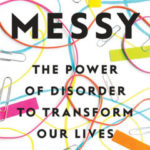In his influential 2009 book, The Checklist Manifesto, surgeon Atul Gawande, a professor at Harvard Medical School, argued that we need more than our memories to effectively navigate the complexities of the modern world — we need to make lists and follow them. The adoption of Gawande’s ideas in the medical field since the book was published has resulted in reductions in complications and death rates around the world.
Now, in “Slow Ideas,” a recent article in The New Yorker, where he’s a staff writer, Gawande addresses the question of why some good ideas spread, while other, equally good ideas — even lifesaving ideas — don’t. He uses as an example the persistence of preventable infant and maternal death in low-income countries due to the failure of health workers to adopt basic, low-tech steps, like hand-washing or giving children rehydrating fluids. Education programs that use person-to-person methods to train health workers in these lifesaving methods have been far more successful than those that provide the same information but with no human interaction.
Effective change requires more than the dissemination of good ideas or even providing incentives, Gawande concludes. “People talking to people,” he writes, “is still how the world’s standards change.” More from the article:
The most common approach to changing behavior is to say to people, ‘Please do X.’ … That is what we say in the classroom, in instructional videos, and in public-service campaigns, and it works, but only up to a point.… In the era of the iPhone, Facebook, and Twitter, we’ve become enamored of ideas that spread as effortlessly as ether. We want frictionless, ‘turnkey’ solutions to the major difficulties of the world — hunger, disease, poverty. We prefer instructional videos to teachers, drones to troops, incentives to institutions. People and institutions can feel messy and anachronistic. They introduce, as the engineers put it, uncontrolled variability.
“But technology and incentive programs are not enough. ‘Diffusion is essentially a social process through which people talking to people spread an innovation,’ wrote Everett Rogers, the great scholar of how new ideas are spread. Mass media can introduce a new idea to people. But, Rogers showed, people follow the lead of other people they know and trust when they decide whether to take it up. Every change requires effort, and the decision to make that effort is a social process.”



